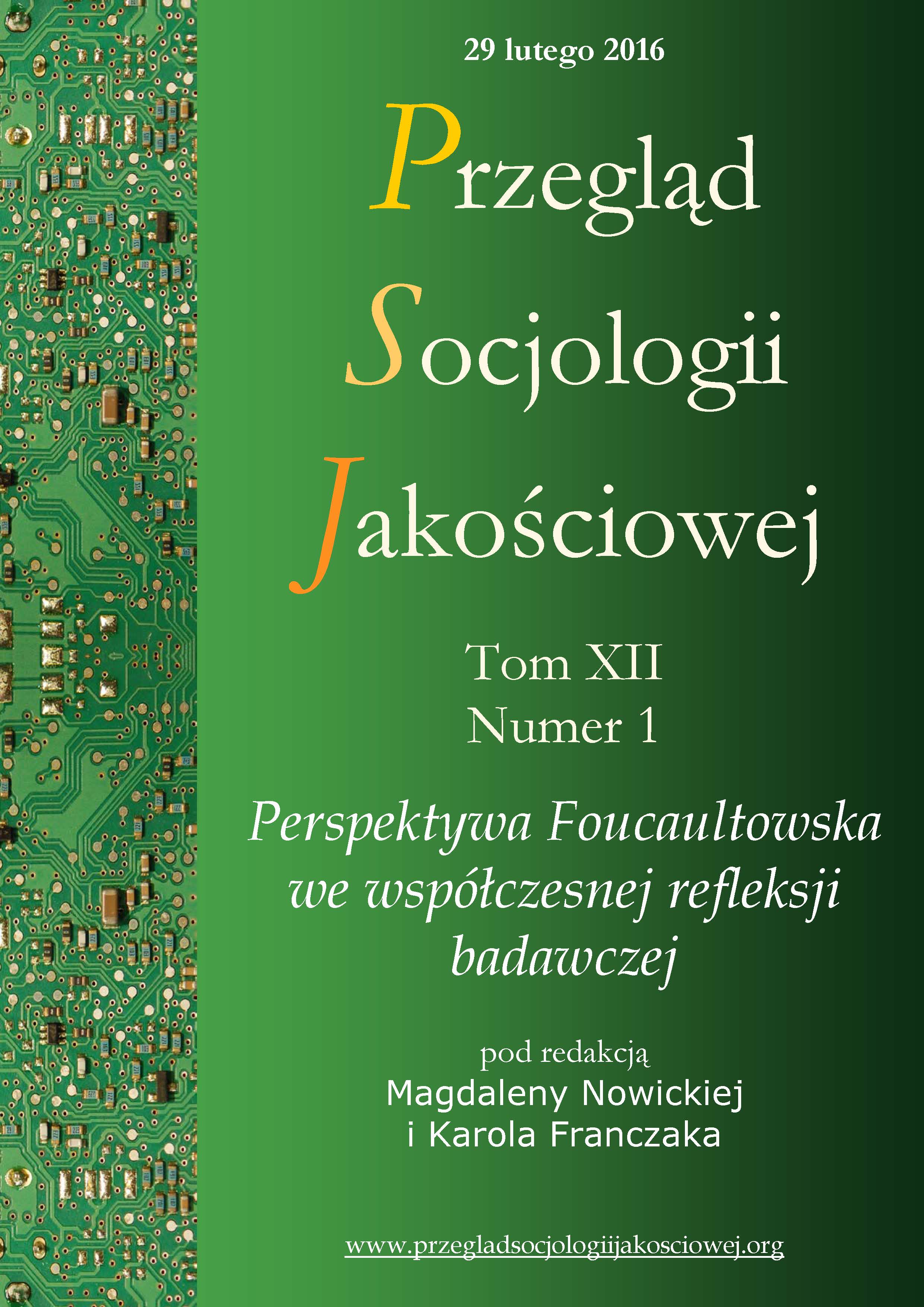“Regimes of Truth” and “Regimes of Fiction.” Foucault on Relation Between Art and Science
DOI:
https://doi.org/10.18778/1733-8069.12.1.04Keywords:
Michel Foucault, Episteme, Las Meninas, Don Quixote, Regimes of Truth, Regimes of FictionAbstract
Foucault once said that, “we can envisage two kinds of philosopher: the kind who opens up new avenues of thought, such as Heidegger, and the kind who in a sense plays the role of an archeologist, studying the space in which thought unfolds, as well as the conditions of that thought, its mode of constitution.” I am going to follow in Foucault’s footsteps, supposing that this highroad is in no sense wide and well recognized. I turn to the issues which Foucault has explored time and again, but which have no strict elaboration in his oeuvres. The idea is as follows: what is the relation between knowledge and beaux arts? While Foucault wanted to show knowledge in great historical formations called epistemaï or discourses, he directed his gaze to the fine art in specific, individual mode. Yet, despite differences in the ways these have been approached—what I want to show—Foucault’s view on relation between knowledge and fine arts is strongly linked by consistent thinking about the history of modern Western culture. According to him, the potential of literature and painting is epistemological, not esthetical. Actually, the art serves as a critique of knowledge. But, the most important in Foucault’s thinking is that this critical role, which literature and painting undertake, is depicted in the manner which is an integral part of the Foucauldian understanding of the history of knowledge. When this history shows discontinuity of changes of human sciences, when under archeological diagnosis their history nullifies truths, it is the literature and painting that have power to sanction change and to announce new forms of cognition.
Downloads
References
Bernauer James W. (1990) Michel Foucault’s Force of Flight. Toward an Ethics for Thought. New York: Humanity Books.
Google Scholar
Eribon Didier (2005) Michel Foucault. Biografia. Przełożył Jacek Levin. Warszawa: Wydawnictwo KR.
Google Scholar
Foucault Michel (1977) Archeologia wiedzy. Przełożył Andrzej Siemek. Warszawa: Państwowy Instytut Wydawniczy.
Google Scholar
Foucault Michel (1980) The Confession of the Flesh [w:] Colin Gordon, ed., Power/Knowledge. Selected Interviews and Other Writings 1972–1977. New York: Pantheon Books, s. 194–228.
Google Scholar
Foucault Michel (1991) The History of Sexuality, Volume II. London: Penguin Books.
Google Scholar
Foucault Michel (1993) Dream, Imagination, Existence [w:] Keith Hoeller, ed., Dream and Existence. New Jersey: Humanity Press, s. 9–128.
Google Scholar
Foucault Michel (1994) Dits et écrits II (1970–1975). Paris: Gallimard.
Google Scholar
Foucault Michel (1999) Zaplecza fabuły [w:] tenże, Powiedziane, napisane. Szaleństwo i literatura. Wybór i opracowanie Tadeusz Komedant. Przełożył Bogdan Banasiak, Tadeusz Komendant i in. Warszawa: Fundacja Aletheia, s. 163–171.
Google Scholar
Foucault Michel (2006) Słowa i rzeczy. Archeologia nauk humanistycznych. Przełożył Tadeusz Komendant. Gdańsk: słowo/obraz terytoria.
Google Scholar
Foucault Michel (2013) Kim jest filozof? [w:] Bartłomiej Błesznowski, Kajetan Maria Jaksender, Krzysztof Matuszewski, red., Kim pan jest, profesorze Foucault? Debaty, rozmowy, polemiki. Wybór i tłumaczenie Kajetan Maria Jaksender. Kraków: Libron i Eperons-Ostrogi, s. 201–202.
Google Scholar
Macey David (1993) The Lives of Michel Foucault. A Biography. New York: Vintage Books.
Google Scholar
Porter Martin (2005) Windows of the Soul. Physiognomy in European Culture 1470–1780. Oxford: Clarendon Press.
Google Scholar
DOI: https://doi.org/10.1093/oso/9780199276578.001.0001
Searle John Rogers (2006) Las Meninas i paradoksy malarskiego przedstawienia [ w:] A ndrzej W itko, r ed., Tajemnica Las Meninas. Antologia tekstów. Kraków: Wydawnictwo AA, s. 137–164.
Google Scholar
Downloads
Published
How to Cite
Issue
Section
License

This work is licensed under a Creative Commons Attribution-NonCommercial-NoDerivatives 4.0 International License.














